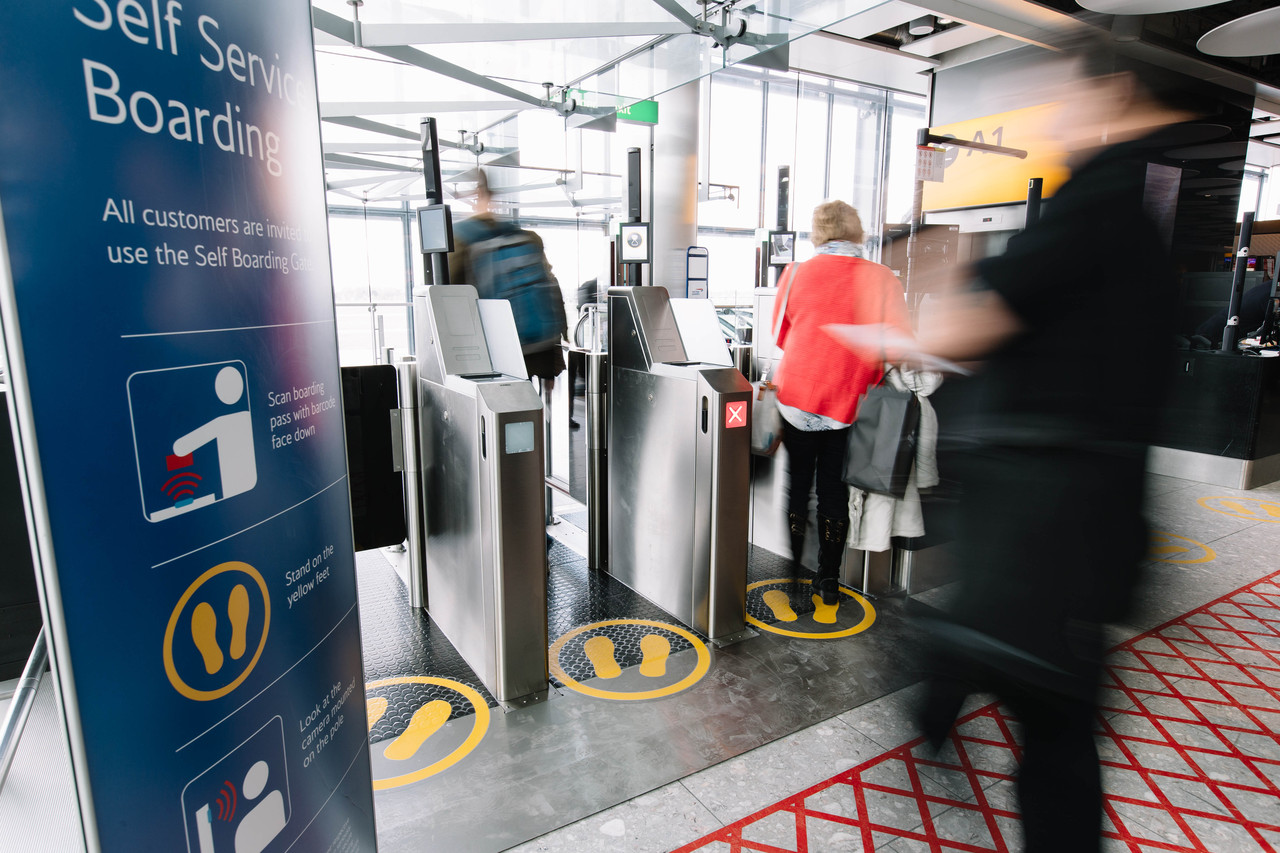
Recently published results from the annual Global Passenger Survey reveal what passengers from around the world think would really improve their air travel experience. Published by the International Air Transport Association (IATA), a global trade body which represents 83% of all air traffic, the findings are a fascinating insight into the improvements in air travel that could make a real difference to your journey.
And the main takeaway from the survey? Improvements in technology and the ability for individuals to take more control over their journey are the biggest concerns of passengers right now.
The survey is a great barometer of the views of over 10,000 people around the world – mostly in Europe and the United States but with all other regions across the globe represented as well.
Those respondents said they didn’t have time to waste waiting in airport queues and hated the particularly nasty pain point that is airport security. They wanted more control over their journey’s and demand to know what is happening with their flight as quickly as possible. They want to embrace new technologies and definitely don’t want to be disconnected from the outside world when they’re up in the air.
“Passengers have never been as empowered as they are today,” explained Pierre Charbonneau, IATA’s Director Passenger and Facilitation.
“Self-service solutions range from mobile check-in and bag drop to self-boarding and automated border control. Smartphone- and tablet-toting, passengers want to use these mobile devices to control their travel experience. They expect easy access to the information they want, exactly when they need it in the travel process.”
Here’s how the GPS could shape your next air travel experience:
68% want to self-tag their own bags
Running against the grain of cimilar survey’s which suggest passengers want more personal service from airline and airport staffers, the GPS claims passengers are now ready to embrace automation with little interaction with staff.
Nearly half (48%) were even happy to self-drop their bag and the majority of respondents said they want to see electronic baggage tags replace the old-fashioned paper version.

Most passengers want to use self-boarding gates
Despite some customers still being weary of self-boarding gates, several airlines have pushed ahead with the initiative and it looks like passengers are starting to buy into it. The GPS found 72% of passengers preferred self-boarding – a small increase on 2016’s results.
Passengers are also getting used to using automated immigration desks – their use has now reached 58%, achieving a satisfaction rate of around 90%.
Passengers are craving lots more information about their journey
It’s probably unsurprising that 85% of respondents want the ability to check the status of their flight but passengers are now demanding way more detail. In particular, they want airlines to step up to the challenge of providing real-time information during periods of travel disruption.
In the past, airline’s have relied on SMS messages to deliver this type of information but passengers now want more detail available through smartphone apps and even by email.
“Passengers expect to get up-to-date information on all aspects of their journey with minimum effort, through their preferred channel,” Charbonneau said.
But, he warns this level of personalisation will require passengers to give up way more personal data about themselves to the airlines.

Passengers want to know their bags haven’t been lost
It’s one of the biggest worries of checking a bag into the aircraft hold – will it actually arrive with you at your destination? But with passengers demanding more and more information at their fingertips, simply trusting the airline simply won’t do anymore.
Around 50% of respondents wanted the ability to track their luggage at every step of its journey – something that IATA wants to make mandatory by next year through its Baggage Tracking Resolution 753.
In the last few months, Delta Air Lines received Platinum certification status through the use of its RFID baggage tracking technology and Qatar Airways became the first airline to fully comply with the requirements, using its in-house developed system.
Securing screening is still the biggest frustration for passengers
As ever, security screening topped the list of passenger pain points for yet another year. Passengers voiced their annoyance at having to remove personal items, unpacking laptops and other electronics, as well as the disparity in security regimes in different airports around the world.
Border control procedures were also a persistent annoyance for passengers, something IATA says could be solved through the increased use of biometric data. Passengers are warming to that idea as well – Over 82% want to use a ‘digital passport’ and 64% would be happy for biometrics to be used as the form of identification.

42% would prefer to use their own device for watching in-flight entertainment
Are seatback televisions a thing of the past? Not quite yet, but even so, 42% of passengers said they’d rather use their own device to watch in-flight entertainment. That’s something some airlines are catering for with the ability to stream traditional in-flight entertainment content to their own devices.
And of course, the ability to remain constantly connected through the use of cellular and wifi connections are increasingly important.
Onboard service still has the biggest impact on a passenger’s experience
Even with all these demands to leverage the latest technology, there’s one thing that still has a much larger impact on the passenger experience – the onboard service, delivered by cabin crew and the airline staff who will spend the most amount of time with passengers.
Mateusz Maszczynski honed his skills as an international flight attendant at the most prominent airline in the Middle East and has been flying ever since... most recently for a well known European airline. Matt is passionate about the aviation industry and has become an expert in passenger experience and human-centric stories. Always keeping an ear close to the ground, Matt's industry insights, analysis and news coverage is frequently relied upon by some of the biggest names in journalism.







